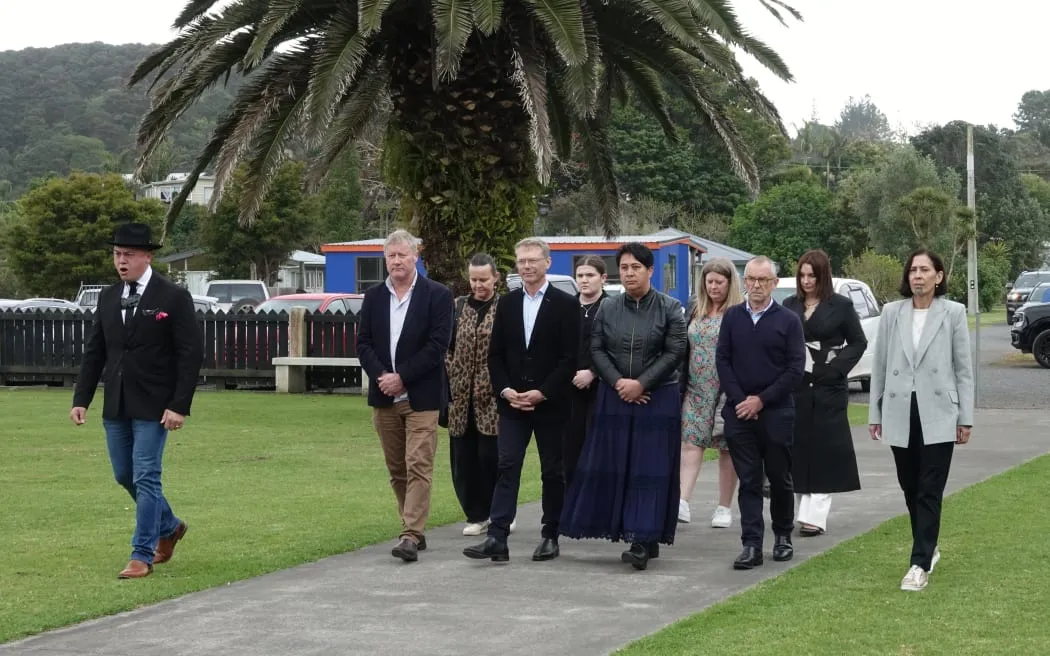Treaty Negotiations Update: Progress Made on Ngāpuhi Settlement
The Māori select committee has received an update on the status of a potential treaty settlement for Ngāpuhi, providing insight into the efforts being made to reach a mandate. Executives from Te Arawhiti, the Office for Māori Crown Relations, appeared before the committee as part of this year’s scrutiny week.
Progress Made on Treaty Settlement
According to regional director Fern Hyett, three groups have formally undertaken mandate work: Ngāti Hine, Whangaroa, and a grouping in the Bay of Islands known as Te Whakaitanga. While other groups are also involved in some capacity, they are not at the same stage in the mandate process.
Hyett emphasized that the Crown will not be forcing any group to the negotiation table, citing the need for “larger groupings” of hāpu. However, she noted that the approach taken by the previous government’s acceptance of the Tuhoronuku mandate in 2009 has been criticized as not reflecting the dynamics on the ground.
The cost of the work undertaken to achieve a mandate for Ngāpuhi, including Tuhoronuku, is approximately $12 million. The Crown acknowledges that Māori never ceded sovereignty on a hāpu level or country-wide, and Hyett believes this should be discussed at the negotiation table.
Challenges and Reconciliation
Labour’s Peeni Henare and the Green Party’s Steve Abel asked about the Crown’s approach to reconciling its breaches of Te Tiriti with the process of seeking a mandate from groups that have not ceded sovereignty. Hyett replied that discussions on this matter should take place at the negotiation table.
Some groups require the Crown to accept that certain conditions must be met before they will commence mandate work, and others are comfortable having this conversation during formal negotiations. Hyett noted that research has been conducted into what factors make iwi and hāpu more likely to settle, but emphasized that relationships evolve over time.
Next Steps
Hyett emphasized the importance of “post settlement space” in allowing groups to engage in a way that is right for them. She noted that this can sometimes lead to delays as groups focus on internal conversations.
In conclusion, while progress has been made on the treaty settlement for Ngāpuhi, significant challenges remain. The Crown’s approach will need to balance its desire for meaningful reconciliation with the need to respect the sovereignty of Māori iwi and hāpu. As negotiations move forward, it is essential that both parties engage in open and honest dialogue about the issues at hand.
Sign up for Ngā Pitopito Kōrero, a daily newsletter curated by our editors and delivered straight to your inbox every weekday.

0 Comments